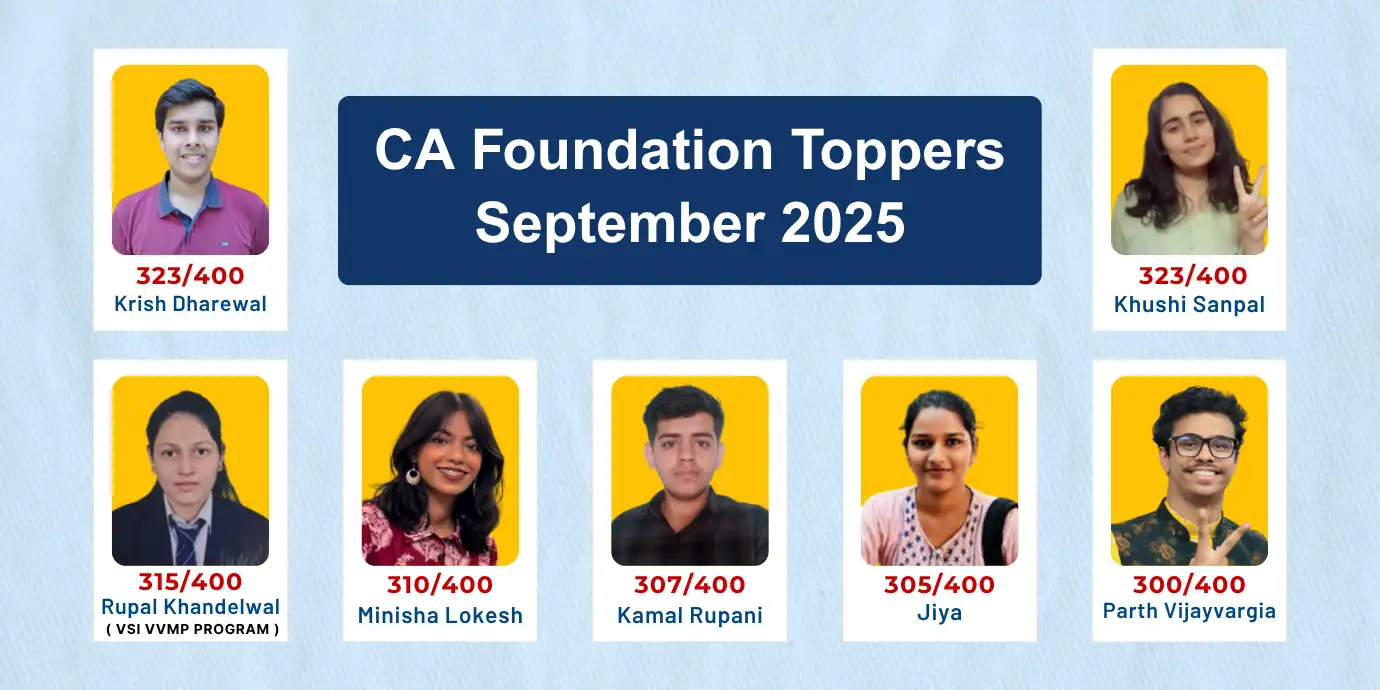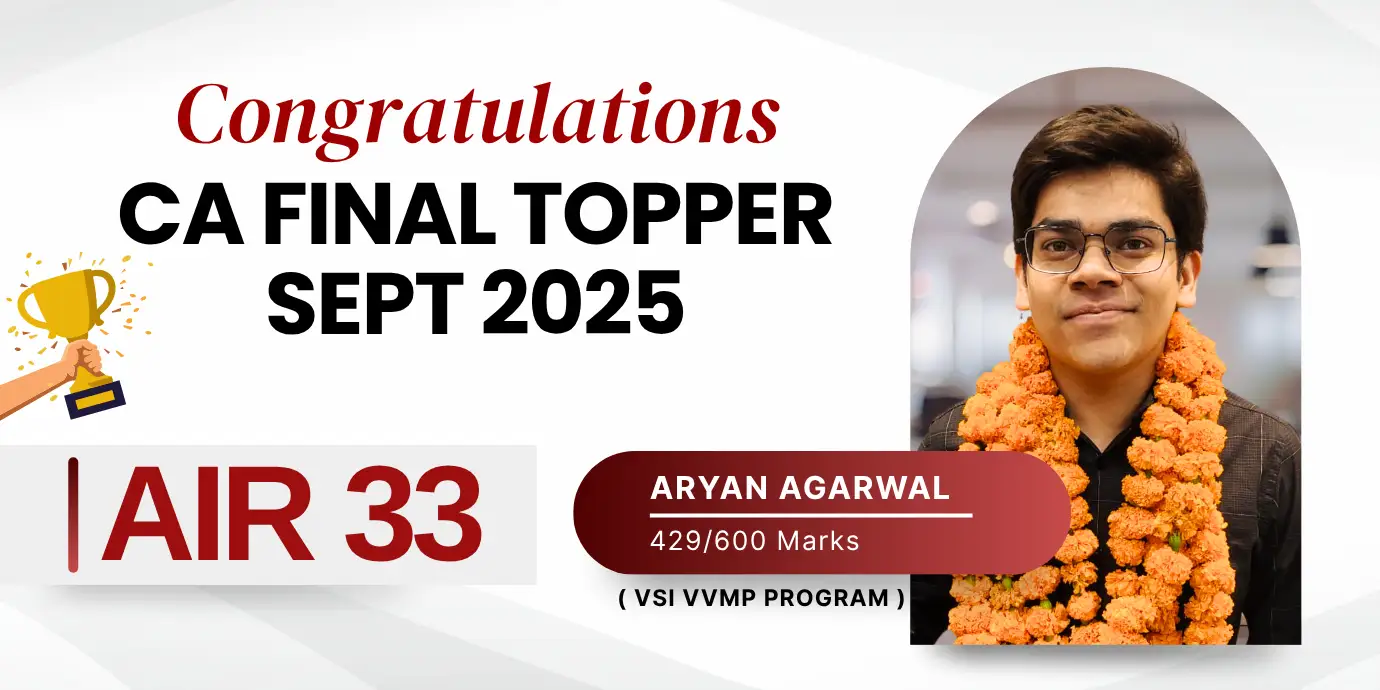Law is considered one of the highest-scoring subjects in CA Intermediate. So, be sure not to lose exemption in such a paper. It can help you a lot in covering the aggregate marks of other papers in the CA Intermediate results. Hence, in this article, we are sharing with you some tips that will help you get an exemption in Law.
ICAI is going to update the CA course along with changes in the exemptions. Check the CA new scheme and know the relevant updates for the CA Intermediate course.
How to Study to Score Exemption in CA Inter Law Paper 2026
- Divide the law syllabus into two Portions
Divided your course into two steps. The first one is important, which you need to revise again and again after reading, and the other one is some unnecessary topics that are not relevant for your exams, and this needs only one-time reading. - Read it Loudly
Whenever you are doing any theory subject, read it loudly so that you can hear your own voice, which helps in retaining the topics for a longer time. And don’t just read it, instead, you should prepare your own notes. Draw some charts to recall the topics section-wise and revise it regularly. - Practice as many questions as you can……..
Most students often commit this mistake. They just read the topics, but ICAI is not going to ask you direct questions. Before giving the answer, you have to understand the examiner’s intention behind the questions and understand what he wants, and this understanding needs practice a lot. Therefore, practice with the CA Intermediate question papers of previous years, along with the mock tests and revision test papers. - Presentation Skills
The presentation is the most crucial part of CA Exams, and a better presentation would help you get an additional 15-20 marks. Present your answer in a better way like –- Start every question from a fresh page and write the answers for all parts of the question in a single place.
- Make a margin on both sides of a page and write the question number as well as points in that margin.
- Try to answer in points rather than cumbersome paras.
- Highlight the important points so that the examiner can focus on them.
- Manage your Time
The course in Intermediate law is very vast, so you need to manage your time accordingly. Prepare your timetable genuinely on the basis of the number of days left. Whenever you get stuck on a single topic, then don’t waste your entire day on such. Switch over to the other topic, and mark it so that you can later discuss it with your teachers or some of your friends. - Cover MTP and RTP
Cover at least 5 attempt Revisionary Test Papers and Mock Test Papers. Complete your revision at least 20 days before the Exam and practice RTP and MTP in the meantime. However, change your answers according to the amendments. - Go through the Amendments
ICAI has a tendency to give importance to the amendments. Subjects like Tax, Law, and Audit contain huge amendments, and they often cover 15-20 per cent of paper, so you must give emphasis on such.
Furthermore, you can also check the complete details of CA Intermediate Registration.
What to Study to Score Exemption in the CA Intermediate Examination
Topics as per the weightage
The syllabus of Law is dividing itself into 2 parts –
- The Company Law (30 Marks)
- Other Laes(40 Marks)
Let’s start with the easiest section i.e.
Business Law –
- In business law, Bonus and Gratuity Act are the easiest topics, and you can easily cover them in a few hours. It will show a good impression on the examiner if you write the sections with the proviso. It covers the weightage of around 8- 12 marks in the paper.
- Most of the time, ICAI asks a subpart of the compulsory question from the Indian Contract Act. However, it is lengthy but still a very interesting topic, and you can definitely expect a case study from such.
- Next comes the Negotiable Instrument Act; it is considered quite technical and tough, but it has a weightage of around 8-12 marks, so you can’t skip it but still keep it aside for latter.
- Then comes the EPF Act. One or two questions, each worth 4 marks, are usually asked from this topic.
Companies Law, 2013 –
Companies Law, 2013 has been greatly amended and there is a high probability that your question paper will cover such amendments. So, prepare them very well and topics covered in such are –
- A short topic, i.e. General Meeting, covers around 8 marks in your paper.
- Share and Share Capital also covers similar marks usually.
- Companies Documents, such as a Memorandum of Association, Article of Association, and Companies Prospectus, also cover 8 marks.
- Debentures, Transfer and Transmission, Membership in a Company covers around 4 marks.
- The remaining chapters contain 8 – 12 Marks approx.
Ethics and Communication –
Most students consider this the easiest part as it does not contain any sections or case laws, but gripping over the provisions is a must.
In such a situation, you can remember the points using some mnemonics, and in this way, you can remember the whole syllabus.
You need not write the Explanation word by word from the book. Write it in your own language, but focus on the same keywords.
Remember students, you cannot write anything until and unless you won’t practice such. So, keep practising questions from the Practice Manual.
I hope this article will help you get an exemption in Law. Please share it with your friends so that everyone can benefit.
All the Best!








